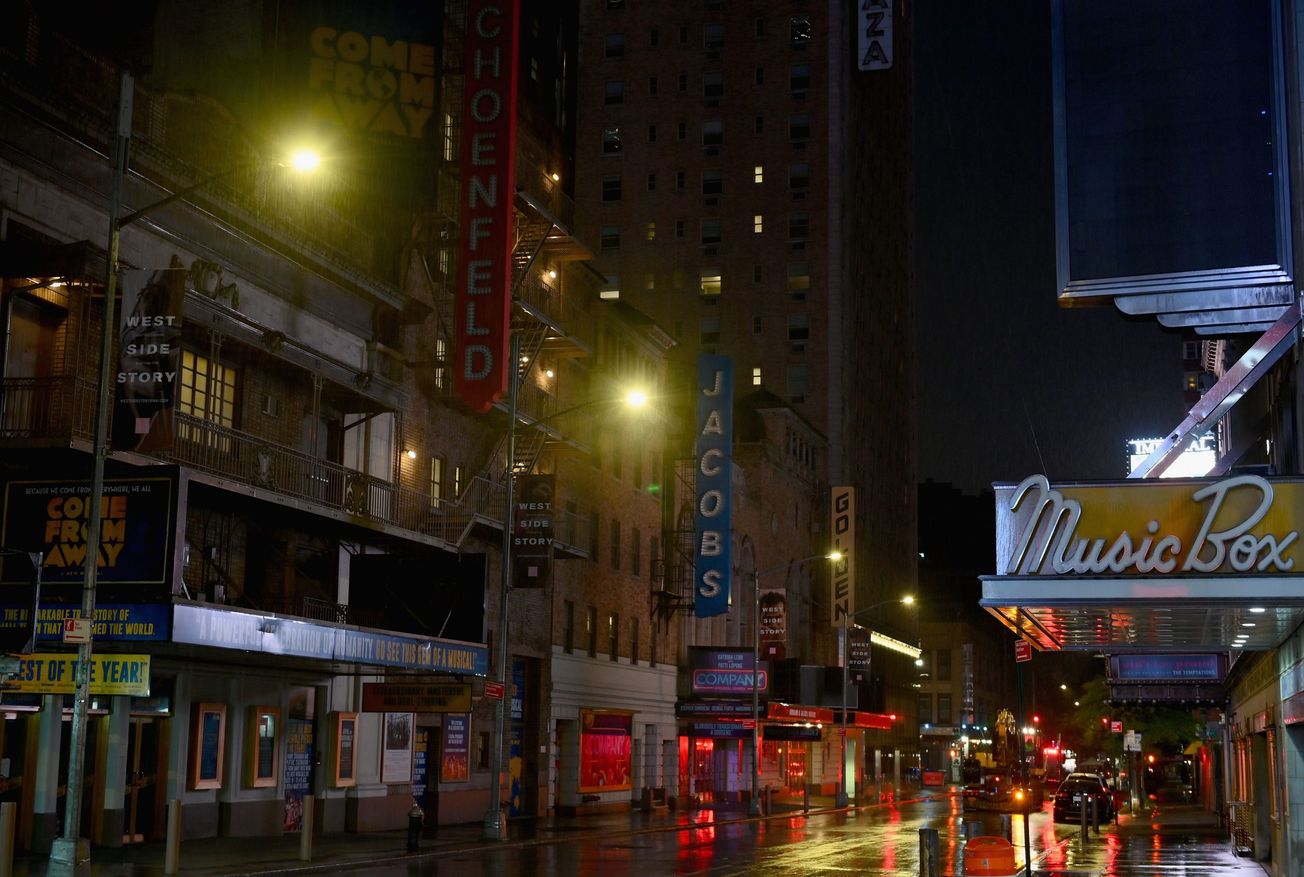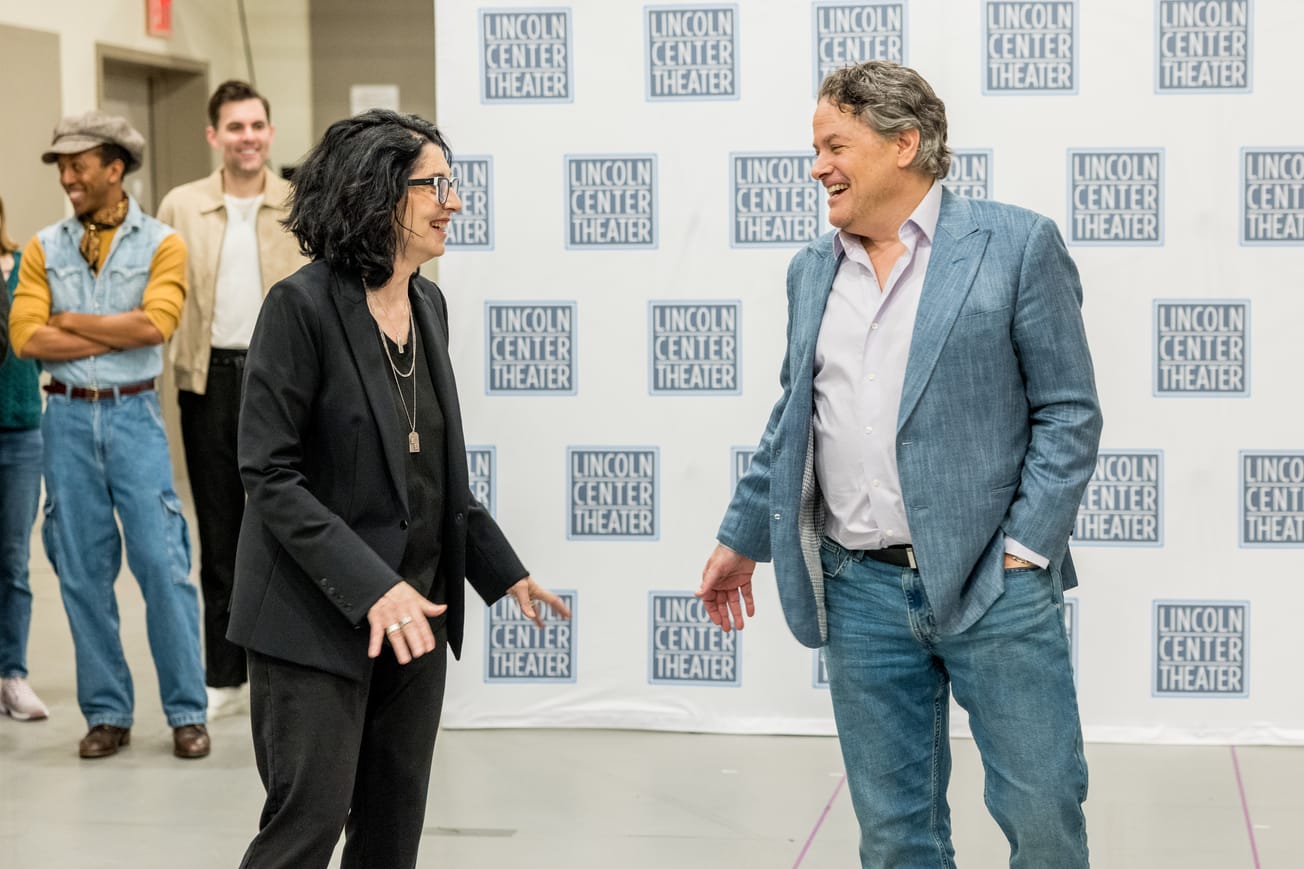When the Broadway League announced theaters would be closed through May 30, 2021, industry members were not surprised by the news.
Some had already received a head’s up from their productions, while others saw the extended shutdown as inevitable given the continued spread of coronavirus and the development timeline for a vaccine.
Still, seeing the date in print surfaced the feelings of despair, helplessness and anger that had been percolating through seven months of theater closures. And now, theater workers are looking for answers on who will save the industry and sustain its members through more than a year without work.
“It feels like our industry is being abandoned,” said actor and playwright Kate Hamill.
Members of the theater community have been relying on unemployment benefits and part-time gigs, such as online coaching, to help pay the bills. But for many this has not been enough, necessitating withdrawals from savings and retirement accounts. The end of the additional $600 in weekly employment benefits has further strained finances.
“It’s been cycles of panic and grief and numbness and budgeting,” said Laurel Parrish, costume stock supervisor at “Wicked.”
The continued shutdown has also impacted health coverage, as the lack of employer contributions has drained health funds, causing plans such as the Equity-League Health Fund to make changes that make it more difficult to earn coverage in the future.
Amid these challenges, and with an uncertain timeline for return, industry members are questioning why they have not seen a larger push to bring these issues to the federal government and support the theatrical workforce.
“It feels like we don’t have a cheerleader of any kind at any level,” Parrish said.
Theatrical unions and the Broadway League have been advocating for continued unemployment benefits, healthcare subsidies and measures such as the Save Our Stages Act, which would give grants to producers and venue owners. These measures have been tied to the passage of another relief package, which has so far stalled in Congress.
But Parrish, Hamill and other industry members say a celebrity or high-profile member of the entertainment industry is needed to give a voice to the problems facing working-class theater workers and make more Americans aware of their plight.
“Where are the people who come to Broadway to burnish up their street cred?,” Hamill asked.
These pleas join an outpouring of online comments and social media posts by industry members such as arts administrator Howard Sherman and actor Julia Murney, advocating for a greater focus on theater workers.
One grassroots effort, Be An Arts Hero, was formed in the spring to address what was seen as a lack of governmental action on behalf of the theatrical community. While the group continues to be confused by the absence of a spokesperson for Broadway, according to member Kimberly Chatterjee, they have an idea of why there has not been a bigger push for the sector.
“I think it does partly come down to this subliminally cultural message of these are just people doing fun stuff for money, instead of an industry that needs to be protected,” said Chatterjee, an actor who serves on the group’s political outreach team.
To be sure, New York Sens. Kirsten Gillibrand and Chuck Schumer have both backed the Save Our Stages Act and tweeted about the need to support the industry after Friday’s announcement. And Broadway is not the only sector that has not yet received aid, as the airline industry and even states are still awaiting relief.
As Be An Arts Hero members meet with legislators, Chatterjee said the group is gaining traction with a financial argument for the industry, as in the $877 billion in value added to the economy by the arts and culture sector. In addition to advocating for COBRA subsidies and additional unemployment benefits, Be An Arts Hero members have been making the case for $43.85 billion in proportionate relief to the sector.
“Our angle really is that the numbers don’t lie,” Chatterjee said.
Without someone pushing for these measures, the fear is the industry will lose many of its members due to their inability to subsist on $300 a week or less in benefits and declining health coverage.
“I don’t know who’s going to be here on the other side,” said Jeremy Leiner, a talent agent for theater, film and television at Nicolosi & Co.
Some virtual readings are moving forward, and there is still the distant possibility of shows to return to, but the uncertainty alone is causing some to question whether they should pivot careers.
“I had some shows lined up, but I have no idea if or when those shows will ever happen, so I just feel like I’m in this never-ending nightmare,” said Josh Lamon, an actor who was most recently seen in “The Prom.”
Still, as Leiner notes, it’s difficult for someone with years of training in one industry to move into another, particularly during a pandemic. That’s even true of theatrical actors looking to move into film and television — sectors which Leiner notes have restarted but also remain very competitive markets.
Amid the sadness, there is an acknowledgement that theater will eventually return. But, Lamon likens the waiting period to the aphorism: “When one door closes, another one opens, but it can be hell in the hallway.”
“We are in a very long hallway,” Lamon said.


























































